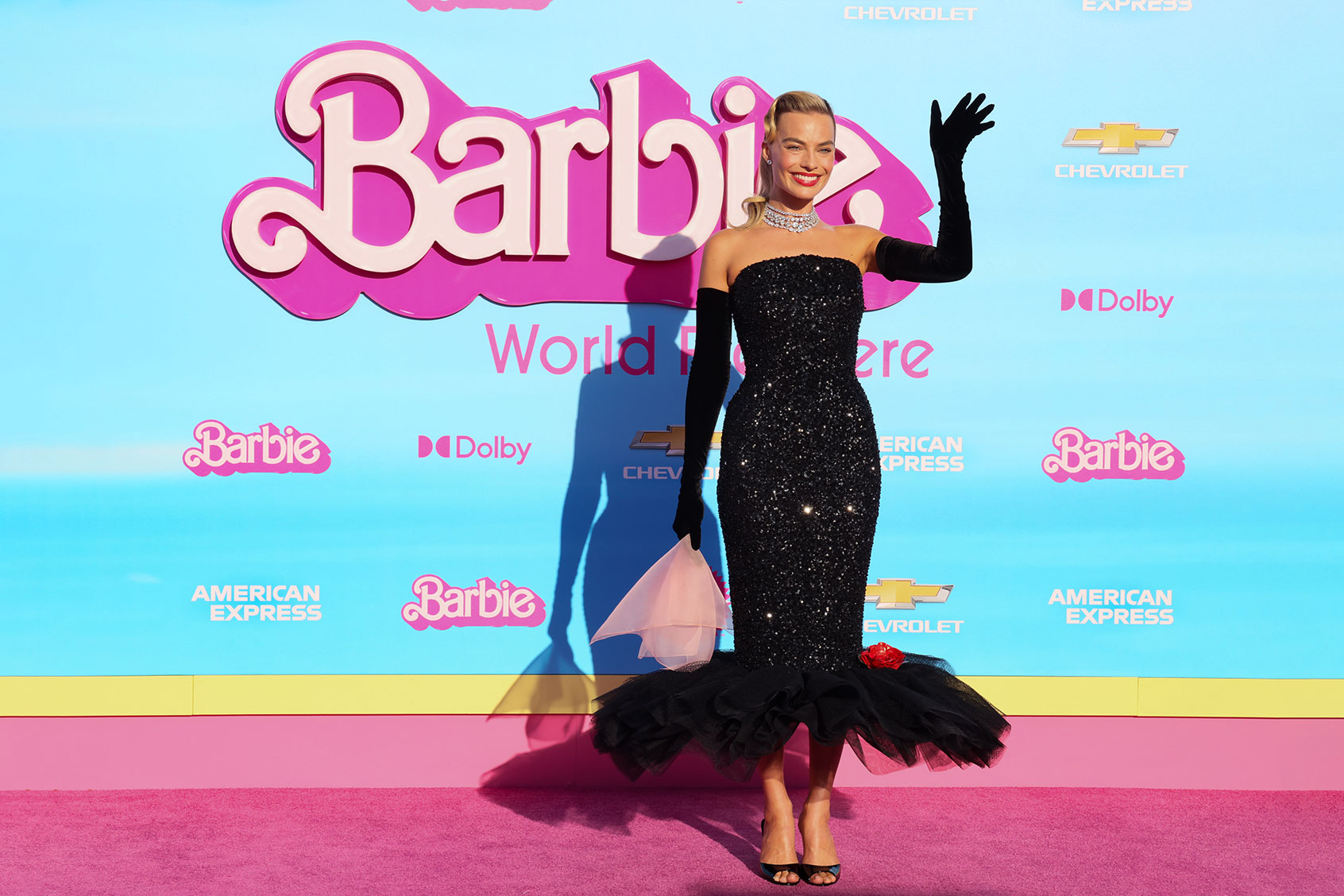“Barbie”-mania has flooded our everyday lives – from Barbie’s international press tour (which just wrapped due to the SAG-AFTRA strike) and Margot Robbie’s stunning and doll-like red carpet looks mimicking different Barbies to Ryan Gosling’s charming “Ken-ergy” bit. “Barbie” is omnipresent, and this feeling of oversaturation of course ushers in unfounded discourse.
Last week, Robbie was trending for days on social media for her “Barbie” looks but also in darker internet fashion – she was trending because people were discussing how . . . mid or average she looked. Wait, what?
Tweets viewed over 60 million times picked apart the Oscar-nominated actress’s physical appearance. One user said: “This is [Robbie] without makeup. Definitely mid.” Another rating her appearance said: “She is a hard 7. You used to find a Margot Robbie in every Blockbuster Video in 1995.”
Wait, what?!
You would think a person in this much spotlight is immune to being relegated to an object – and you’re wrong.
The comments on her appearance are so outlandish and out of left field for a woman who is so universally perceived as attractive. Throughout her career, the actor has been typecast as a sex symbol. Straight dudebros short circuit to her very naked bubble bath cameo in the “The Big Short” or as the sexy blonde bombshell in “Wolf of Wall Street” or as the vindictive antihero Harley Quinn in “Suicide Squad.”
Robbie’s desirability being under attack peels back the curtain on a potential pattern – that once a woman reaches a height in her success, the only way to humble her is to pick apart her physical appearance. It’s always a low blow but the internet falls for it every time, feeding the beast that are online trolls.
You would think a person in this much spotlight is immune to being relegated to an object – and you’re wrong. It may even make Robbie increasingly vulnerable to this objectification especially as she takes on the role of a literal plastic doll known for her hyper-femininity. In fact, this is why Barbie is also being criticized for her looks and sexuality.
A tweet in response to a critique of Barbie being too centered on girlboss feminism said unironically: “Barbie is a bimbo and a slut we should be teaching young girls it’s OK to be dumb and sexually promiscuous and obsessed with boys. That is literally the whole point.”
Remarks like this are troubling because while Barbie is an inanimate object, the doll has a had cultural significance and impact on the way young girls view themselves. So while it is extremely worrisome people are labeling a children’s doll with such gender-specific shaming language — it is typical of the kind of vitriolic commentary that has always surrounded women’s bodies, sexualities and desirability, and in turn reflects how these comments can become internalized for women.
More than that, this limelight on Robbie does not shield her or Barbie from the verbal assault; it only intensifies it. The actor is at the center of attention right now as she’s traveled from city from city promoting the film. She’s in her element. She is in control. And that fires people up like a lit match to kerosene. Nothing pisses off people more than a women in control of the way she is being perceived in a hypersexual world.
The conversation surrounding how Robbie looks is deeply superficial and plainly misogynistic. Stepping into the image of Barbie, Robbie becomes this thing that people target — based on nothing more than objectification of the female body.
Who decides who is desirable?
Unfortunately for Robbie, Barbie’s uber-feminine projection allows men on the internet to immediately write her off. And if Barbie is seen as the pinnacle of womanhood and desirability, hyper-masculinity rejects it unless it services the male gaze. Robbie is stripped of her humanity and is seen as the same commodity that Barbie represents. Her beauty is a pitfall but it also grants her access to space within the patriarchy — but only if she plays the role of a docile, desirable and submissive object.
We need your help to stay independent
This narrative creates a treacherous, slippery slope. It unleashes the question who decides who is desirable? Desirability politics “deals with the question of how social ideals for attractiveness can have a pull, and how one can also pull back,” Everydayfeminism.com states. “It’s the idea that desire is political — both affected by and simultaneously shaping systems of power and oppression.”
Let’s put this into perspective: Robbie is a rich, white, skinny, blonde-haired, blue-eyed A-list actress. She easily fits into what is desirable in a Western capitalist society that identifies beauty as social, political and economic capital.
Someone who fits so snugly into the beauty standard — so much so that she is emulating Barbie’s doll looks on the red carpet – should be above this type of dehumanization, right? But Robbie is not. And if Robbie isn’t exempt from the grueling and harsh beauty standards and criticisms that plague our beauty and entertainment industry – none of us working class, nonwhite, fat, disabled, gay and imperfect people are too.

